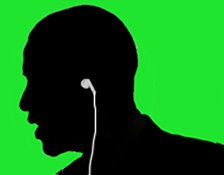
How Jewish is Hollywood?
A few weeks ago we discussed African American elites and their privileged place in the socioeconomic hierarchy of the United States? Interesting conversation and one worth having. Here is another...
From the early days of the founding of this country, a belief running through this largely Christian culture has been that Jews are an enemy of the christian churches, will suffer the displeasure of God until they accept Jesus, and in more recent years, are members of a group that is intent on bringing down the United States government. Jewish people, many god fearing Christian Americans assert, and some very powerful ones at that, control both the banking and entertainment sectors of our society.
For those of you who do not know the history, and I'll assume that this represents most of you, the Christian churches have always had a rather rancorous relationship with Jewish people. In spite of the fact that Jesus lived and died as a Jew, and presumably will still be a Jew when/if he ever returns. In spite of the fact that early followers of Christ who wrote the Christian New Testament all considered themselves to be Jewish throughout their lives (yes, I'm not kidding). Jewish Christians turned against their Jewish brethren and throughout the years painted members of this group as the persecutors and murderers of Jesus--not the Romans. Why this happened is an interesting story, and one that I'll leave you to explore if you have any inclination to do so.
But the bottom line is that Jewish people have long suffered the wrath of Christians with long (albiet distorted) memories and short tempers...and a predilection to savage and brutal behavior. Martin Luther, for example, perhaps the most important figure in the emergence of Protestantism, wrote the script for Adolph Hitler. "Round up the Jews, the scourge of civilization, and put them in work camps or kill them," is essentially what he said. (Here's a summary.)
So it is with this in mind that I'm led to the current posting about the prevalence and power of Jewish moguls in Hollywood. Keep in mind that Hollywood does not determine this culture -- even though it certain plays a role in how we see ourselves as a people. To understand my reluctance to post the article one only has to read some of the comments that readers made about it. Some are thoughtful and considered, but all too many demonstrate a near total lack of understanding of a very complex issue. For those in this group, the article merely confirms their anti-Semitic thinking.
So when is it acceptable to open up a "pandora's box" of bigotry and misinterpretation? A few years back the Jewish Theological Seminary sponsored a coffee table book that described how Hollywood is run by Jewish people. It is called "Entertaining America," in case you're interested. Hmm... Check out the article and reflect on the implications.






